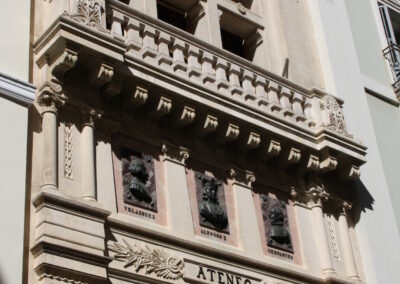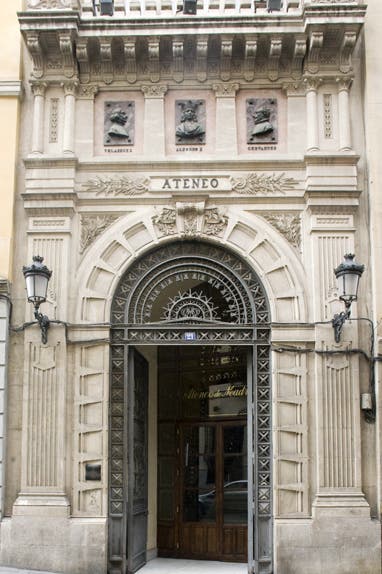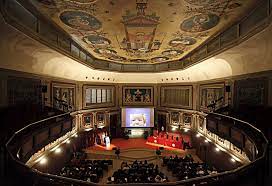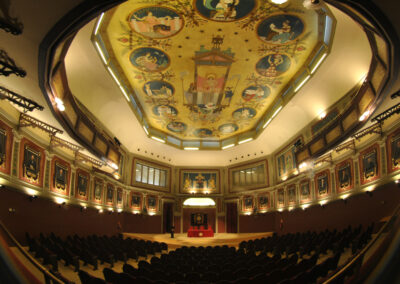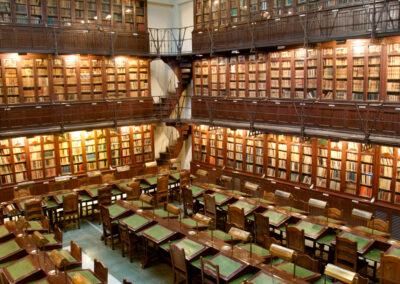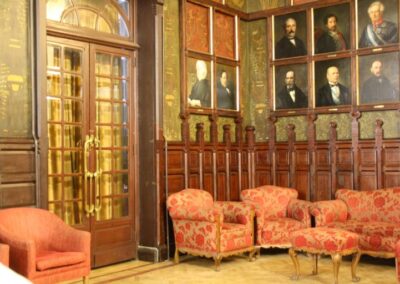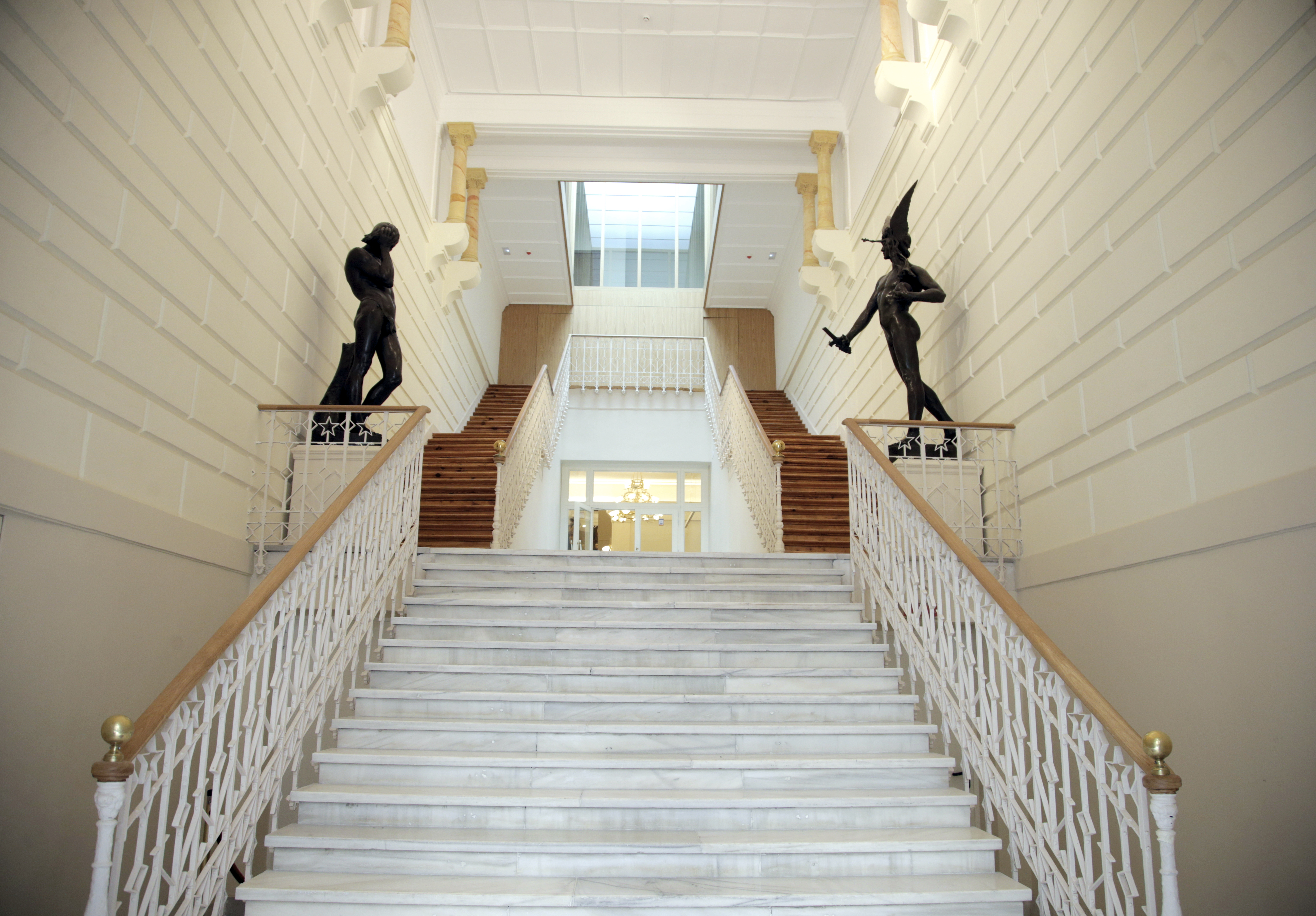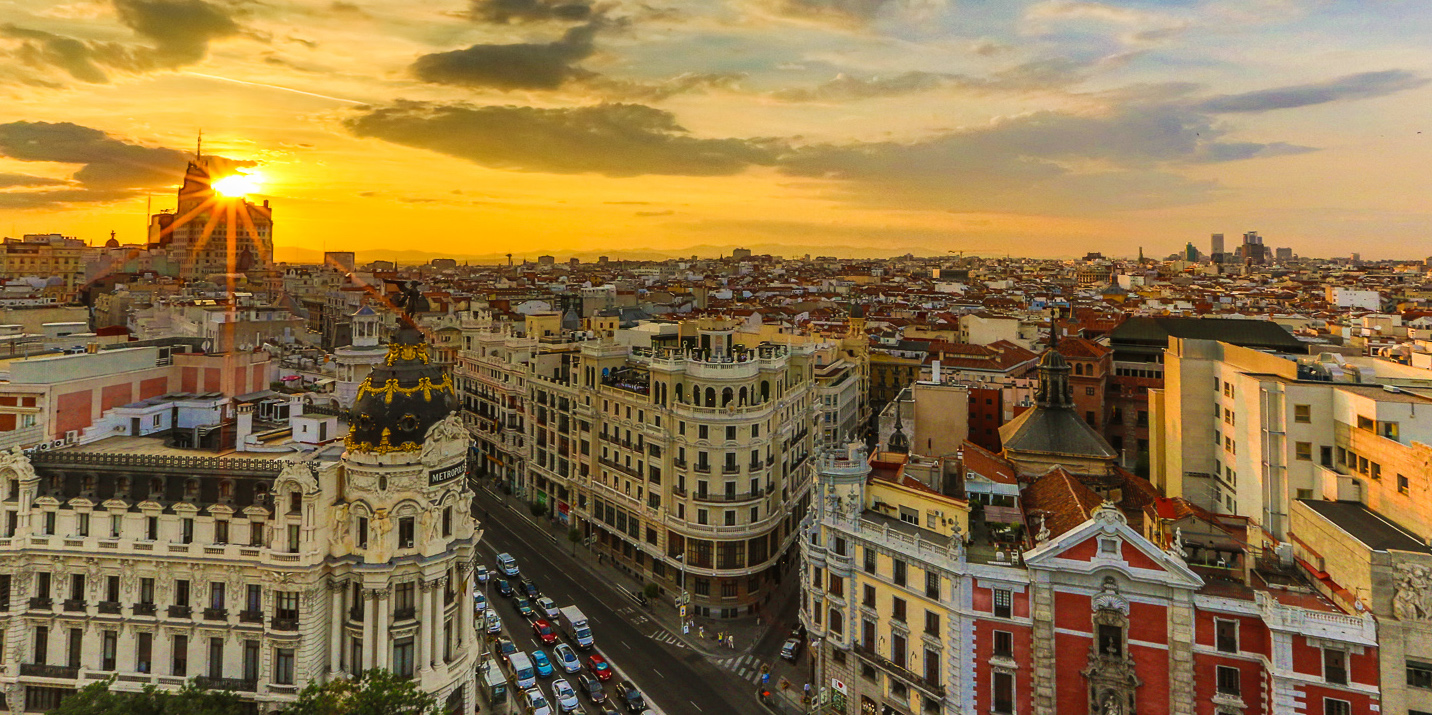
Our 2023 conference will be held in Madrid, Spain
June 1-3, 2023
“Bringing theory to the forefront of developmental neuroscience”
Organized by Susan Rivera and Caitlin Mahy
Local arrangements committee: Cintia Rodríguez, María Núñez, Floor van Alphen, & Ignacio Brescó
**Please scroll to the bottom of the page for venue and hotel information.**
Early Bird Conference Registration Fees (by April 1, 2023)
Regular Faculty: $250
Regular Student or Emeritus/Retired Faculty: $150
Reduced Faculty (Members from economically disadvantaged countries): $125
Reduced Student (Student members from economically disadvantaged countries): $60
Reduced rates are available to individuals working in economical disadvantaged countries.
To register, please visit our Member site and login to your account and then select “2023 registration” from the “conference” dropdown menu.
Please see the “Help” section on the Members site for more information.
Our conference will be held at the beatiful El Ateneo- Ateneo Madrid. Please scroll down for photos of this venue and recommendations for accommodations in Madrid.
In addition to registering for the conference, members will also be able to pay a small fee to attend our conference party at El Prado Museum in Madrid on June 2nd from 9:30- 11:30 PM. Cocktails and live music will be provided. This party will be held in the amazing Salon of the Muses (see photo below). Be sure to register for this party when you register to attend the conference!
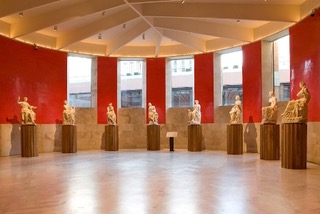
Extended submission deadline: January 15, 2023
There are four types of submissions that can be submitted to our 2023 conference: (1) paper presentations, (2) poster presentations, (3) symposium sessions, and (4) discussion sessions.
For this conference, we are accepting submissions in English and Spanish.
All topics for submission are welcome and need not relate to the conference theme.
If you have any questions about your submission, please contact Caitlin Mahy (caitlin.mahy@brocku.ca).
To submit to the conference, please go to the membership site, create an account for free (or login if you already have an account), and then select “Conference” and then “2023 submissions“.
Your information will be populated in the form and the can enter your abstract and relevant information (author information, keywords, etc.).
When you hit “submit” at the bottom of the form, your submission will be complete.
Plenary Speakers:
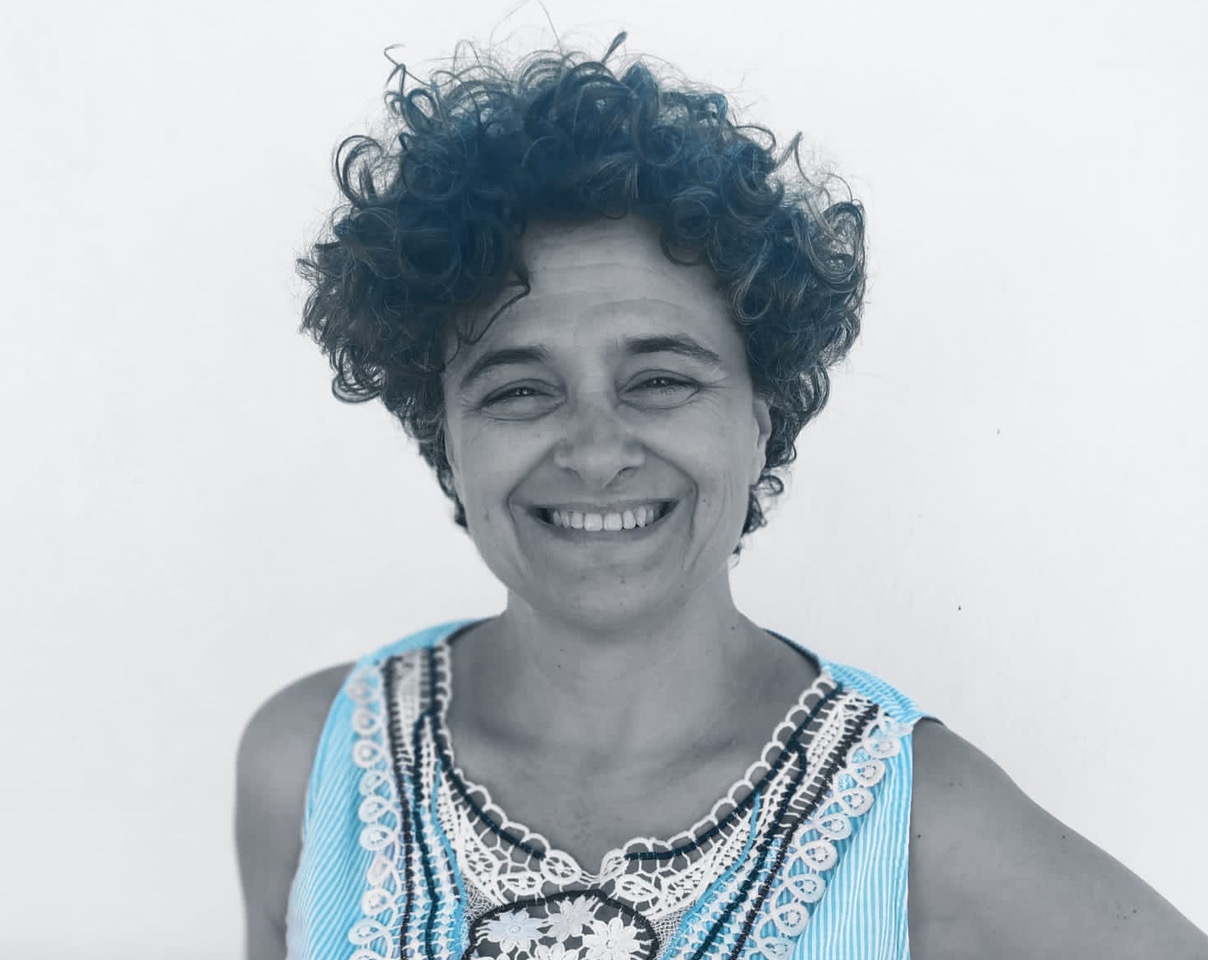
M. Rosario Rueda (University of Granada, Spain)
Developing an attentive brain: Contribution of the cognitive neuroscience approach to a theory of attentional development
Abstract
Cognitive models previous to the rise of neuroimaging technology highlighted aspects of sustained, selective and cognitive control as constitutive of the construct of attention. These models and the experimental paradigms that were designed to measure those aspects have guided the search for brain networks of attention as the technology became available, leading to the formulation of the Attention Networks Theory by Posner and colleagues (Posner & Petersen, 1990; Petersen & Posner, 2012). Over the past decades, a great bulk of research has helped to elucidate the localization and timing of brain mechanisms underlying the functions and effects of attention. The conjunction of theory and new methods can greatly inform the understanding of the development of attention and underlying brain processes. In this talk, the development of attention processes during infancy and childhood will be examined within the framework of cognitive neuroscience.
Brief Biography
M. Rosario (Charo) Rueda is Full Professor in the Department of Experimental Psychology at the University of Granada, in Spain. She also runs the Developmental Cognitive Neuroscience Lab (https://wpd.ugr.es/~labncd/) of the Mind, Brain and Behaviour Research Centre (CIMCYC) of the UGR. She received a PhD in Psychology with honour at the University of Granada in 2000. In the following years, she was a research associate at the Psychology Department of the University of Oregon and the Sackler Institute for Developmental Psychobiology (USA). She is the author of numerous scientific publications on the development of mind and brain processes, being primarily interested in studying the development of attention and self-regulation during infancy and childhood, as well as educational and constitutional factors that influence such development.
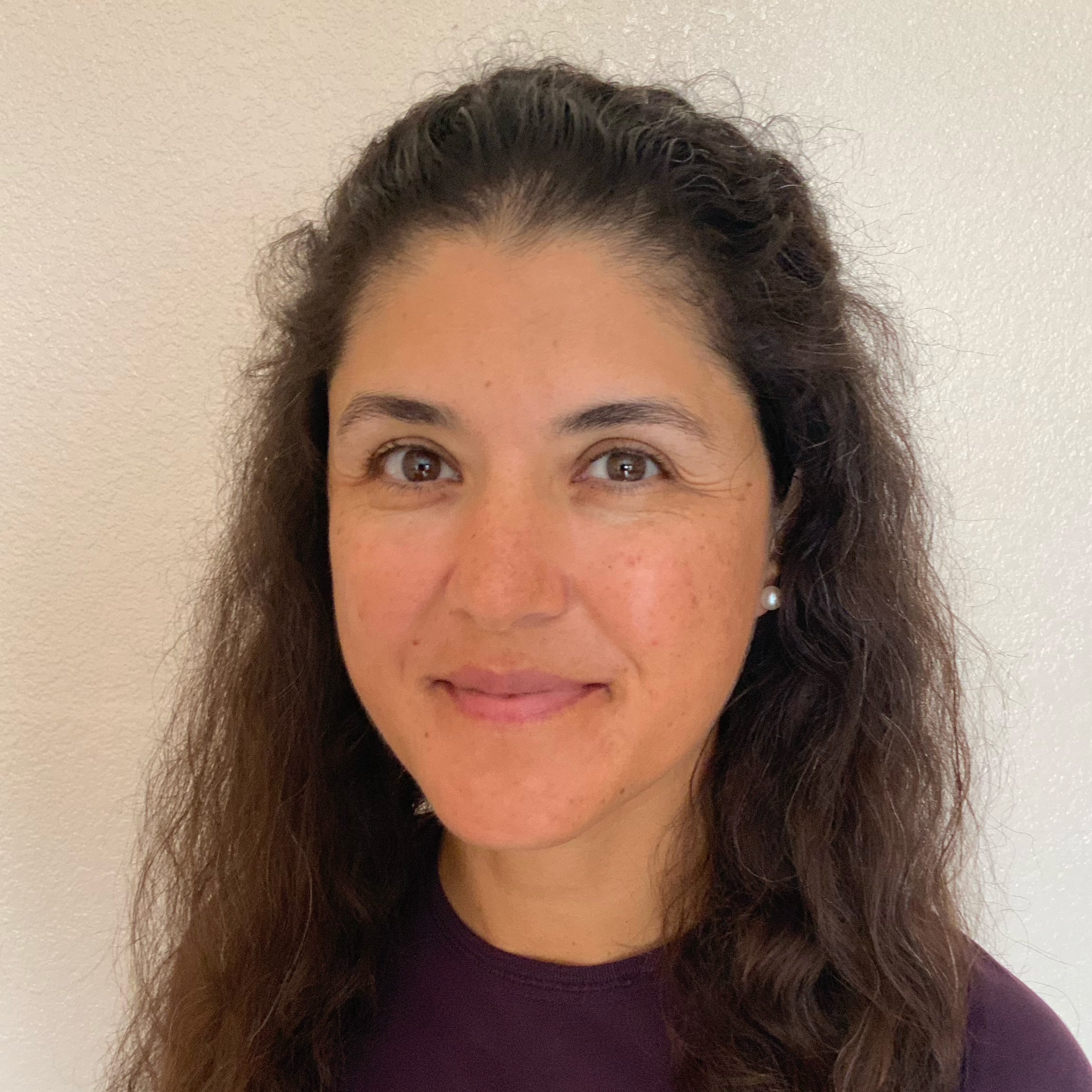
Marie Arsalidou (Higher School of Economics, Russia)
Translating links between neuroscience and constructivist developmental theory
Abstract
Human is the most valuable intelligence we have. Humans are capable of great feats in part because of their higher order cognitive abilities. Children’s cognitive abilities develop and change with age but what underlines these changes is still being deciphered. Psychology has plenty of theoretical frameworks that organize information to make predictions about cognitive development. Neuroscience is generating large amounts of data, often data-driven, that provide new insights on the brain-behavioral mechanisms. Both fields offer powerful knowledge, and it makes sense to combine them. Here I offer examples of how constructivist developmental theory can be used to frame neuroscience studies related to core cognitive assessments, and how constructivist developmental theory can be used to interpret neuroscience evidence from brain correlates of mathematical cognition. I conclude with a proposal that constructivist theory and neuroscience provide complementary knowledge that can speed progress in modelling the mechanisms that change with age.
Brief Biography
Marie Arsalidou is a Principal Scientist at NeuroPsyLab.com, Adjunct Professor at York University in Toronto and a former Associate Professor at HSE University in Moscow. With strong background in constructivist developmental theory, she leads multi-disciplinary studies to investigate neurocognitive development in children, adolescents, and adults. She has been honored to receive numerous awards and recognitions in Canada, USA, and Russia. Her publications have been featured in the media (e.g., Telegraph; Psychology Today). She has given plenary addresses for academia and industry and her expertise has been sought by publishing houses and governmental funding agencies. She has lived in the Mediterranean, Caribbean, Central America, North America, and Russia. She champions efforts for improved culture fair cognitive developmental assessments and awareness of the positive messages neuroscience can have on theory and practice.
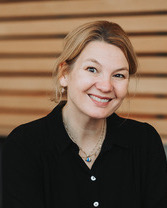
Eveline Crone (Erasmus University Rotterdam, The Netherlands)
The development of self-concept in adolescence: From theory to neuroimaging and back
Abstract
Adolescent development is a period in life when self-concept goes through formative changes, while at the same time brain development continues into the early twenties in interplay with social experiences. How can insights from neuroimaging help us to inform, understand and restrict models of self-concept development? In this talk I will present evidence that neural reactivity when thinking about self and others provides a new level of insights into how and when changes in self-concept emerge in adolescence, and which factors facilitate self-concept development. The current COVID-19 crisis has had unprecedented effects on social experiences in adolescence. In the second half of the talk, I will present novel findings based on brain science, survey research and youth focus groups, suggesting that social experiences are crucial for developing into contributing members of society, and the implications of the current crisis on these opportunities.
Brief Biography
Prof. Eveline Crone is full professor in Developmental Neuroscience in Society at Erasmus University Rotterdam. Her Society, Youth and Neuroscience Connected (SYNC) lab examines the psychological and neural processes involved in self-regulation and social development from birth to adulthood, with a special focus on adolescence. Prof. Eveline Crone is a member of the Royal Netherlands Academy of Arts and Sciences (KNAW) and is vice-president of the Scientific Council of the European Research Council (ERC), the European Commission’s excellence program for Frontiers Research. Eveline has been awarded several prestigious research grants from the Netherlands Science Foundation and the ERC. In 2017, Eveline received the Spinoza award for her research on the adolescent brain. The Spinoza award is the highest recognition in Dutch Science. In 2022, she was awarded a Gravitation Grant for the program “Growing Up Together in Society”.
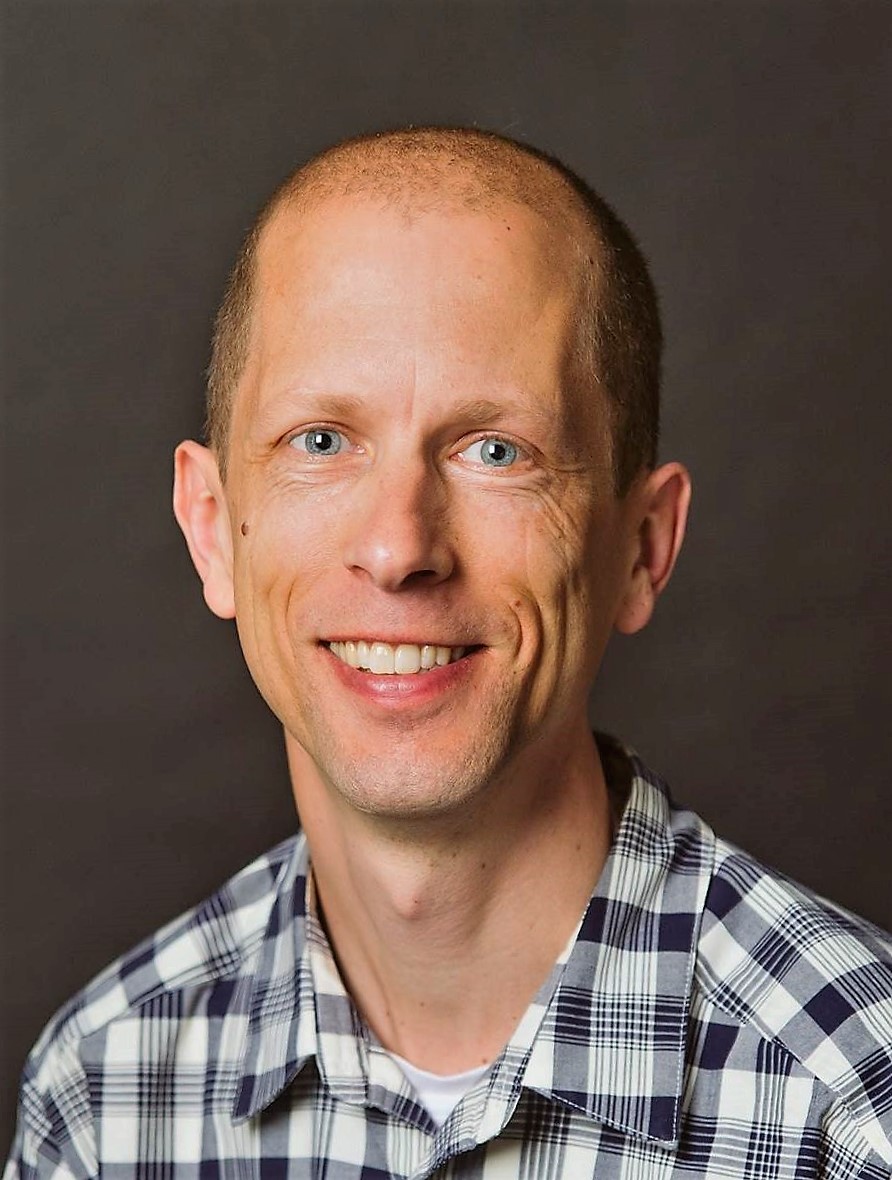
Peter Marshall (Temple University, United States)
Brains in bodies, bodies in brains
Abstract
To understand the relations between neuroscience and developmental theory, we need to situate brains in the bodies of active, biologically autonomous individuals. We also need to consider the origins of brains in the context of the history of animals. Evidence points to bodies with neurons existing before brains, with the first nervous systems likely coordinating internal activity across disparate parts of the body. Sensory-motor functions of nervous systems emerged more fully with the evolution of the metazoan body, as cephalization concentrated neurons at the anterior end of the animal. Evolving brains then facilitated the intertwining of moving, sensing, and acting as a single unit, establishing a new kind of body-self or body schema, and marking sharper distinctions between self and non-self. Part of this presentation focuses on “body maps” as one aspect of the body schema, including the evolution and development of body maps, how to study them in the infant brain, and their potential role in self-other correspondences and social engagement processes. At a broader level, although maps are ubiquitous in the mammalian brain, we need to remember that the brain does not “represent” the body (or an outside world) in the way that it might appear to us as human observers. Instead, maps are the structures of the experienced world of the organism. Developmentally, this experienced world is co-determined by the activity and existence of the organism itself. Returning to developmental theory, we can see that development at all levels occurs through embodied action. This is a core tenet of process-relational developmental systems theory, a framework that situates neuroscience within a wider metatheoretical perspective that can fruitfully guide empirical work.
Brief Biography
Peter J. Marshall is Professor of Psychology and Chair of the Department of Psychology & Neuroscience at Temple University in Philadelphia (USA). His research in developmental social-cognitive neuroscience has been funded by the National Science Foundation, the National Institutes of Health, and the James S. McDonnell Foundation. In their most recent published studies, Dr. Marshall and his research team have focused on aspects of the connections between self and other across infancy, childhood, and into the young adult years. Topics of particular interest include the role of body maps in mediating self-other correspondences, and the potential of electroencephalographic (EEG) methods for advancing work in this area. Dr. Marshall is President-Elect of the Society for the Study of Human Development, a Fellow of the Association for Psychological Science, and is a past recipient of the Lindback Award for Distinguished Teaching at Temple University. He received his B.A. and Ph.D. degrees from the University of Cambridge and carried out postdoctoral research at the University of Maryland before joining the faculty at Temple University in 2004.
Our invited symposium organizers are:
Usha Goswami (Cambridge, UK): neural basis of learning disorders
Gaia Scerif (Oxford, UK): neuroscience of attention and executive development
Simona Ghetti (UC Davis, USA): neuroscience of memory development
Mark Sabbagh (Queen’s University, Canada): social cognitive neuroscience
Santiago Ramón y Cajal at the Ateneo in Madrid
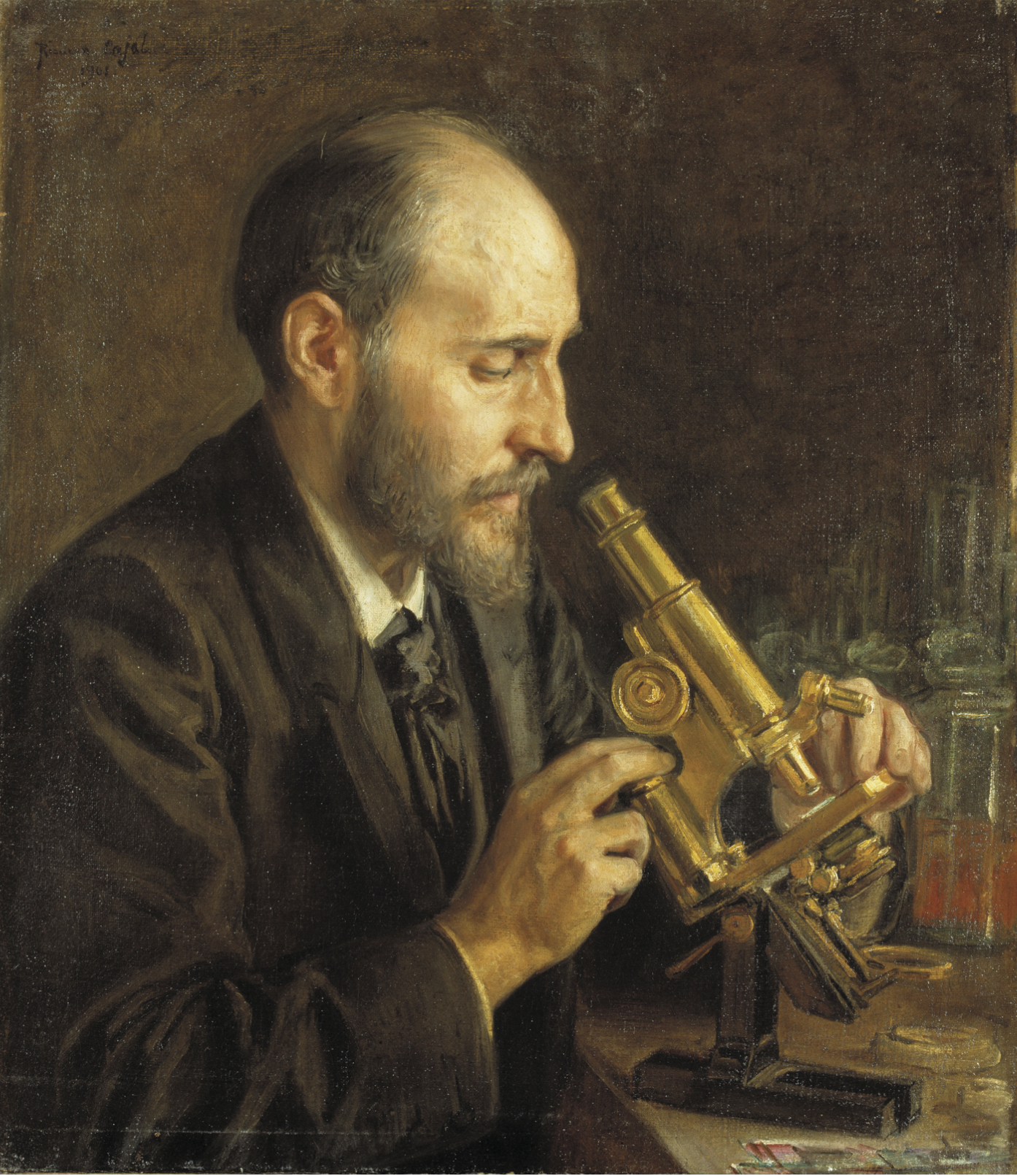
Madrazo y Garreta, Ricardo de (1852-1917). Portrait of Santiago Ramón y Cajal. Oil on canvas, 69×61 cm. Inventory No: AM/00053-A. Collection of the Scientific, Literary and Artistic Ateneo in Madrid.
Madrazo y Garreta, Ricardo de (1852-1917). Retrato de Santiago Ramón y Cajal. Óleo sobre lienzo, 69×61 cm. No de inventario: AM/00053-A. Colección del Ateneo Científico, Literario y Artístico de Madrid.
Santiago Ramón y Cajal (1852-1934), founder of modern neuroscience, was member number 6.074 of the Madrid Ateneo (Athenaeum). He was President of the Exact, Physical and Natural Sciences department in 1895-1896, and Vice-president of the Governing Board in 1898-1899. He held the Chair for Structure and Activity of the Nervous System, and gave two annual courses between 1896 and 1898. In 1899 he ran the newly created Biology laboratory at the Ateneo. In 1906 he won the Nobel prize in Physiology for his neuronal conception of the nervous system.
“I’m not really a sage, but rather a patriot, more of a tireless worker than a calculating architect, more soldier than captain, in sum, more a man of action than a man of thoughts and words” (Ramón y Cajal, 1900).
Santiago Ramón y Cajal (1852-1934), padre de la neurociencia moderna, era socio del Ateneo con el número 6.074. Fue Presidente de la Sección de Ciencias Exactas, Físicas y Naturales en 1895-1896, y Vicepresidente de la Junta de Gobierno en 1898-1899. Ocupa la cátedra de Estructura y Actividad del Sistema Nervioso, e impartió dos cursos anuales entre 1896 y 1898. En 1899 dirige el laboratorio de Biología recién creado en el Ateneo. En 1906 obtiene el premio Nobel de Fisiología por su concepción neuronal del sistema nervioso.
“No soy en realidad un sabio sino un patriota, tengo más de obrero infatigable que de arquitecto calculador, más de soldado que de capitán, más en suma de hombre de acción que de hombre de pensamiento y de palabra” (Ramón y Cajal, 1900).
Our conference will be held in el Ateneo de Madrid. Pictures of this gorgeous venue can be seen in the gallery below.
Local arrangements committee: Cintia Rodríguez, María Núñez, & Floor van Alphen
HOW TO REACH THE CONFERENCE VENUE FROM MADRID AIRPORT
-
Underground: Line 8 will take you to Nuevos Ministerios metro station. From here there are 2 options: 1) by Bus (14 or 27) to Plaza de Neptuno, 5 min walk from the conference venue and most hotels; 2) by Cercanías train from Nuevos Ministerios station to Sol station (just one stop), 7 min walk from the conference venue and many of the hotels.
-
Special Shuttle Bus: Aeropuerto-Plaza de Cibeles, 8 min walking distance from the conference venue and many of the hotels.
-
Taxi from the airport: 30€.
Accommodations
Here are a list of hotels that are close to our conference venue. Note that some are not yet taking reservations for June 2023. Note that 1-2 stars indicate less expensive (but most have private bathrooms) and 3 and 4 stars indicate more expensive.
If you are travelling with your family, we recommend the Hostal Edreira or Hostal Lisboa. One Shot Prado also has rooms for 4 people.
HOSTAL EDREIRA (**)
Atocha 75, 2º, https://hostaledreira.com
Tel: +34 91 429 01 84, e-mail: info@hostaledreira.com
3 min walk from El Ateneo
Discount Code: JPS-ATENEO
HOSTAL CARRACEDO (*)
León, 13, 3º, https://www.hostalcarracedo.com/es/
Tel: +34 91 429 51 76, e-mail: hostalcarracedo@gmail.com
2 min walk from El Ateneo
HOSTAL SAN ANTONIO (*)
León, 13, 2º
Tel: +34 91 429 51 37, e-mail: hostalsanantoniomadrid@gmail.com
2 min walk from El Ateneo
HOSTAL LAS TORRES (*)
León, 29 https://www.hostallastorres.es
Tel: +34 91 429 17 04, e-mail: hotallastorres@hotmail.com
2 min walk from El Ateneo
HOSTAL MARÍA LUISA (**)
Hortaleza, 19, 2º https://www.hostalmarialuisa.com
Tel: +34 915 21 16 30
Valoración: 8,2/10 · 905 reseñas
13 min walk from El Ateneo
Discount Code: JPS-ATENEO
HOSTAL JEMASACA (**)
Palma, 61, https://www.hostaljemasaca-palma61.com
Tel: +34 915 32 70 11
25 min walk from El Ateneo
Discount Code: JPS-ATENEO
HOSTAL CONDESTABLE (**)
Puebla, 15, 2º, https://www.hostalcondestable.com/es/
Tel: +34 611 60 24 18
15 min walk from El Ateneo
Discount Code: JPS-ATENEO
ONE SHOT PRADO (***)
Prado 23, https://www.hoteloneshotprado23.com/es
Tel: +34 914 204 001, e-mail: prado23@oneshothotels.com
Next door to El Ateneo
10% Discount (10 rooms available) with reservation. Please use Code: JPS-ATENEO.
IBIS STYLES MADRID PRADO (***)
Prado 11, https://ibisstylesmadridprado.com-hotel.com/es/
Tel: +34 913 690 234, e-mail: h8052@accor.com
1 min walk from El Ateneo
10% Discount (10 rooms available) with reservation by e-mail or telephone.
HOSTAL LISBOA (***)
Ventura de la Vega 17, https://www.hostallisboa.com/es/
Tel: +34 914 294 676; 914 299 894, e-mail: hostallisboa@hostallisboa.com
2 min walk from El Ateneo
CATALONIA LAS CORTES (****)
Prado 6, https://www.cataloniahotels.com/es/hotel/catalonia-las-cortes
Tel: +34 913 89 60 51, e-mail: lascortes@cataloniahotels.com
1 min walk from El Ateneo
10% Discount with reservation Code: ATENEO.
CATALONIA ATOCHA (****)
Atocha 81, https://www.cataloniahotels.com/es/hotel/catalonia-atocha
Tel: +34 913 89 60 51
4 min walk from El Ateneo
10% Discount with reservation Code: ATENEO.

